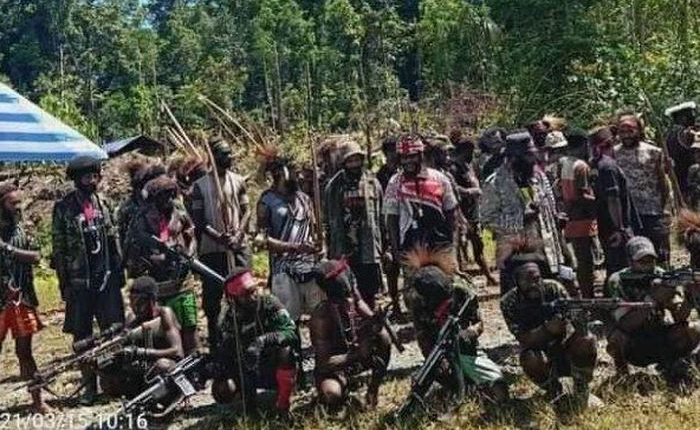Attacking Civil Society, KST Papua is a Common Enemy
By: Loa Murib )*
Papua, a province rich in natural beauty, is also a stage for complex conflicts. The armed conflict created by the Papuan Separatist Terrorist Group (KST) has caused tension and suffering for civil society. In this context, it is important to understand that KST Papua is not a representation of the peaceful and productive aspirations of the Papuan people. On the other hand, KST Papua is a common enemy for civil society who hope to live in peace and progress.
The conflict in Papua is nothing new. Since colonial rule, this region has been the center of attention with various political, economic and social issues. As time went by, aspirations for special autonomy grew, and some groups began to use violence to achieve their goals. KST Papua emerged as an armed group that opposes the Indonesian government and claims to be the defender of the rights of the Papuan people.
Civil society in Papua lives in constant insecurity and worry. KST Papua often uses hit-and-run tactics, bombings and attacks on security forces, causing civilians to become victims intentionally or unintentionally. They cannot plan the future calmly and live in daily fear.
Papuan youth leader, Absalom Yerisitouw, fully supports law enforcement against KST Papua, especially under the leadership of Egianus Kogoya by the TNI-Polri. Law enforcement efforts against KST in Papua are carried out to provide a sense of security and comfort to the community.
The Chief of the Kamoro Tribe, Bernadus Yawa, said he rejected the existence of KST on Papuan land. This is because members of the Papuan KST gang often kill or massacre native Papuans and immigrants.
Apart from threatening the lives of many civilians, KST Papua activities also result in restrictions on community access and mobility. They may be forced to leave their homes, villages, or even workplaces due to constant attacks or threats. This hinders economic and social development in the region.
KST Papua often damages infrastructure, including bridges, roads and other public facilities. This not only harms the government but also civil society who need access to basic services. Education, health and local economies are increasingly disrupted.
Chairman of the Indonesian People’s Consultative Assembly Bambang Soesatyo, who is usually called Bamsoet, asked the Papua Regional Police together with elements of the TNI to immediately respond to the series of violent acts carried out by KST Papua, by sending and deploying troops to back up security. The former chairman of the DPR RI asked the security forces to take firm action against the KKB who were carrying out terror against the community
It is important to remember that KST Papua does not represent the aspirations of the majority of the Papuan people. Most of the local population wants peace, development and prosperity. KST Papua, with its violent actions, actually hinders the journey towards independence that the Papuan people want.
In facing the threat of KST Papua, civil society has a crucial role as agents of change. Various community groups, including activists, traditional leaders, and local leaders, can unite to oppose violence and promote dialogue. Concrete steps such as education, human rights advocacy, and building solidarity networks between communities can strengthen the position of civil society.
The Indonesian government has prioritized dialogue and negotiation to find a peaceful solution. This process must involve all parties involved, including civil society, so that the results can reflect the interests of the entire community. However, the KST refused and continued to carry out cruel actions against civil society and even Papuans.
The government continues to increase investment in economic and social development in Papua which can help address the root causes of the conflict. Increasing access to education, health and employment opportunities can provide constructive alternatives for Papuans.
In addition, the Government continuing to empower local communities to play an active role in conflict resolution is key. Through active participation in the democratic process, youth, women and other community groups can shape a better future for Papua.
Fighting and freeing Papua from various terror and crimes against humanity by KST Papua is a concrete manifestation of the state’s efforts to defend and protect the humanitarian rights (read: human rights) of the Papuan people. Remember that the Rome Statute and Republic of Indonesia Law No. 26 of 2000 concerning Human Rights Courts include murder as a crime against humanity and a serious human rights violation. This means that the State is obliged and must act so that the Papuan people obtain all their human rights and dignity. There should be no more casualties due to KST Papua’s barbarity.
KST Papua in Papua is not a representation of the hopes and aspirations of civil society. Civil society, with its diversity and potential, can be a positive force in building peace and progress in Papua. Through joint efforts between the government, civil society and various related parties, perhaps we can witness the realization of a peaceful, prosperous and independent Papua.
)* The author is a Papuan student in Surabaya
